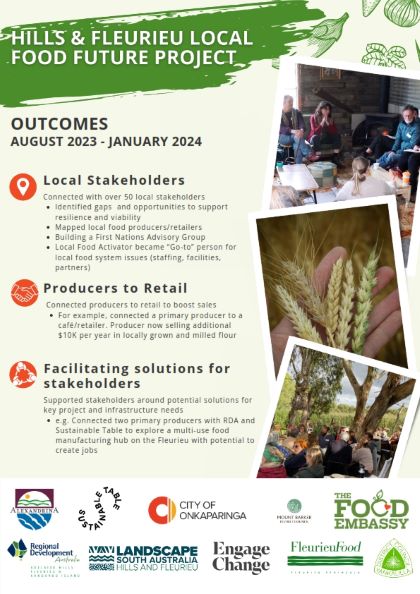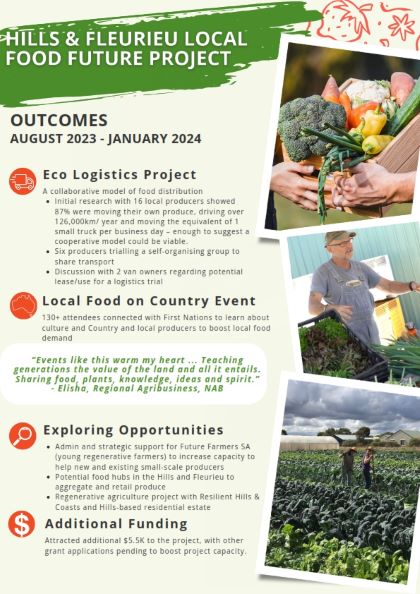In 2021 Alexandrina Council was involved in a collaborative project with other local and state government organisations, food system stakeholders and communities to answer an important question – How can we enable resilient, regenerative food systems in South Australia?
Together we learnt more about our current food system and its challenges.
We asked “how could a regenerative food system drive climate change action? Support local jobs? Reduce food waste? Connect us as a community?
We imagined what a regenerative food system could look like in our communities and we mapped out how we could get there.
Check out a short video of one of our workshops.
To share what we learnt, we created a toolbox to help other Councils and communities to plan for a regenerative food system.
This page highlights some of the food system challenges and opportunities for us to work together on, in Alexandrina and across the region.
We are interested in talking to, and collaborating with individuals, community groups, businesses, non-government and government organisations to further support a regenerative food system. Find out how you can be involved here.
What is a food system?
A food system is “everyone and everything it takes to get food to our plates.” (SA Urban Food Network)
The food system includes food production and processing, right through to eating and resource recovery.
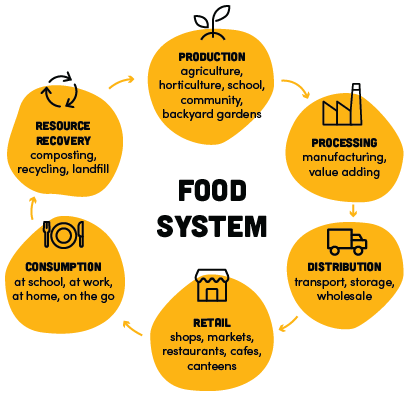
How is our current food system going?
Food is a big industry in Alexandrina.
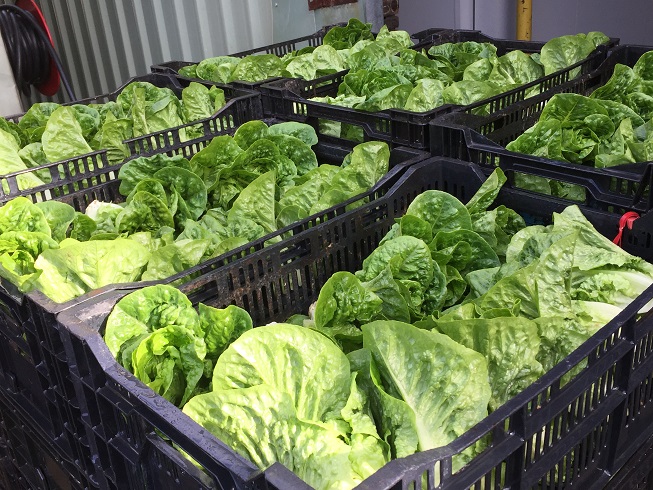 | $251 million worth of agricultural goods are produced in Alexandrina each year1 Key contributors: |
|---|---|
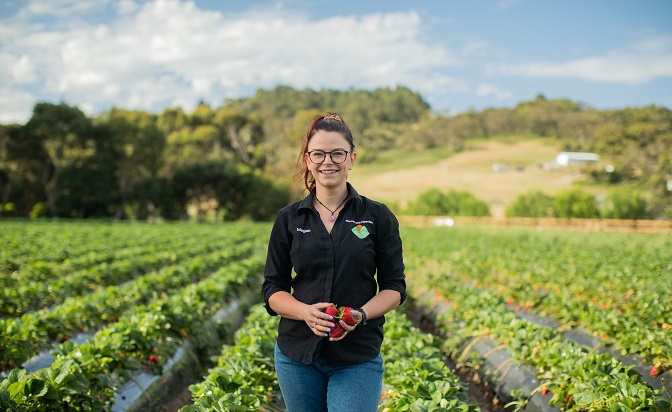 | 2558 people are employed in food-related roles2 |
But not everything is going well…
 | 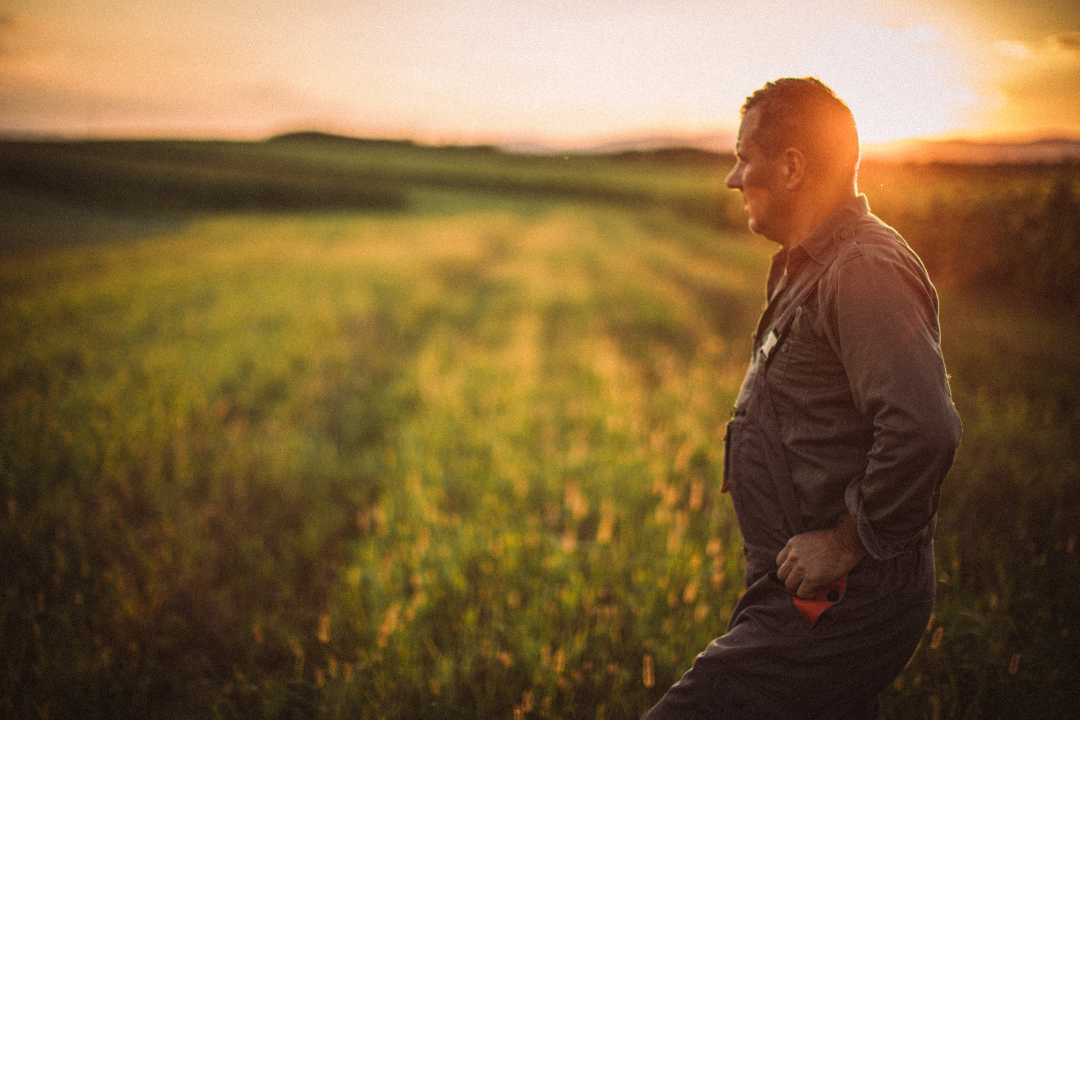 | 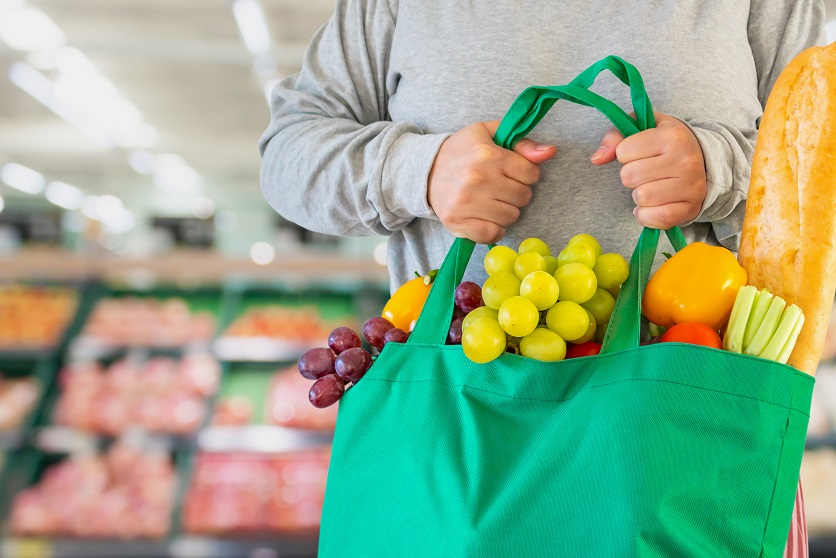 | 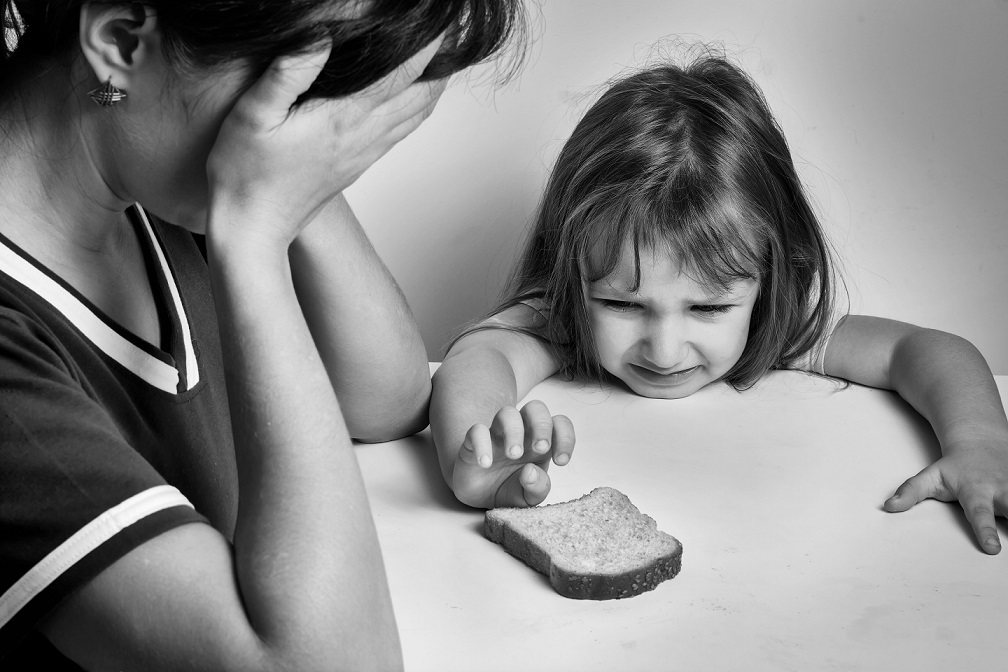 | 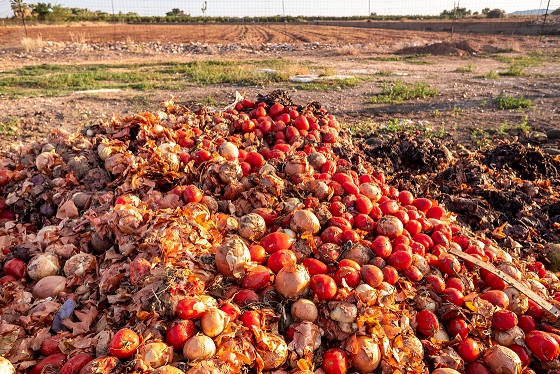 |
|---|---|---|---|---|
20-35% of our carbon emissions are from the food system (3) (4) | Employment in the agriculture industry is reducing (1) | 1 in 5 Shopping bags of food are wasted (5) | 1 in 8 South Australians go hungry (6) | 32% Of waste going to landfill is organic and could be recycled (7) |
1. ABS 2020-21. 2. National Institute of Economic and Industry Research 2021-22. 3. Xu et al. 2021. 4. Food & Climate Research Network 2015. 5. Food Innovation Australia Limited 2021. 6. Foodbank SA 2020. 7. FRWA 2021-2022.
We are concerned about:
- Climate change affecting food production
- Chemical vs regenerative or organic farming
- Loss or lack of skilled labour in agriculture
- Ageing farming population
- Foreign ownership of farmland, water access rights and supply chains
- Integration and consideration of nature in development and agriculture
- Rising cost of living.
What kind of food system would we like to see in Alexandrina?
Through workshops and conversations with farmers, retailers, gardeners, eaters, researchers, planners and other Alexandrina food system stakeholders, we created a shared vision for a regenerative food system in Alexandrina.

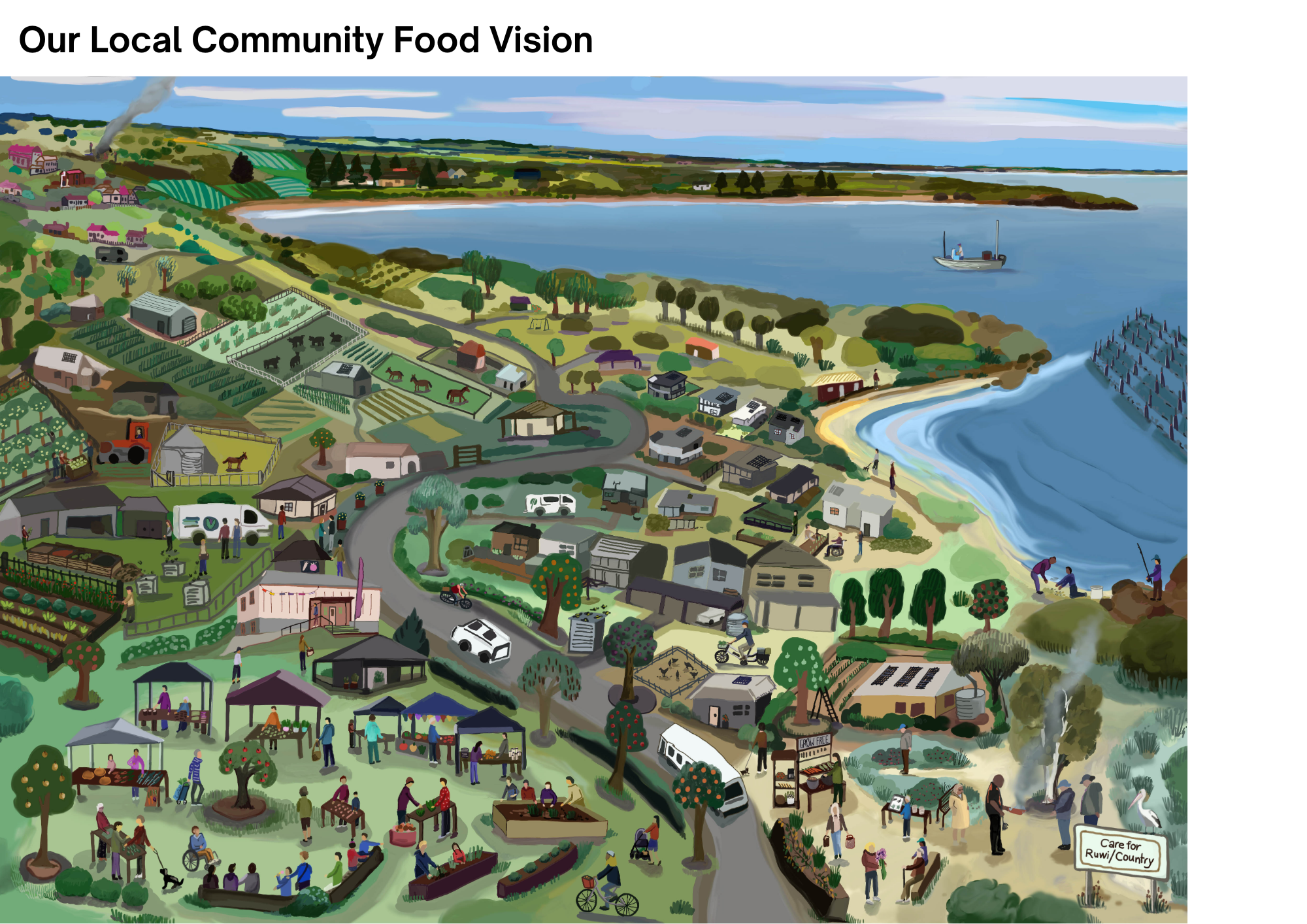
How will we get there?
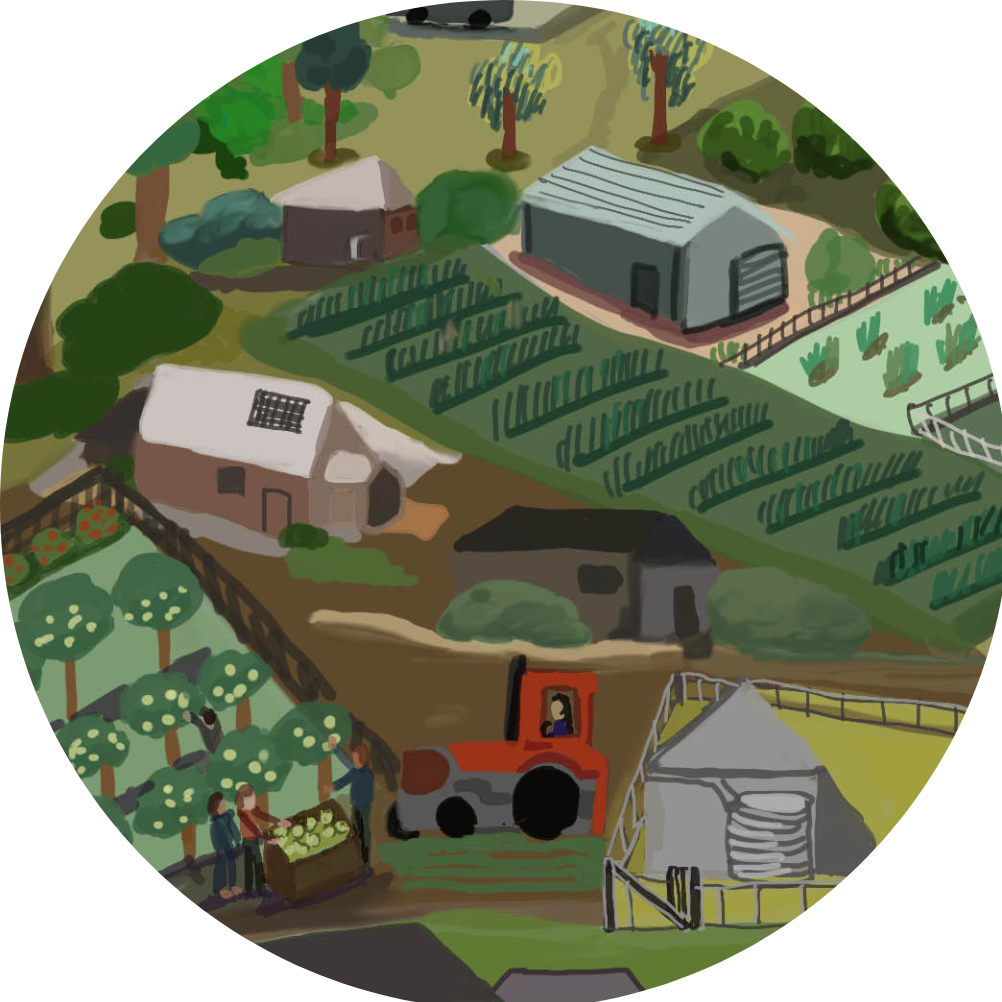 | 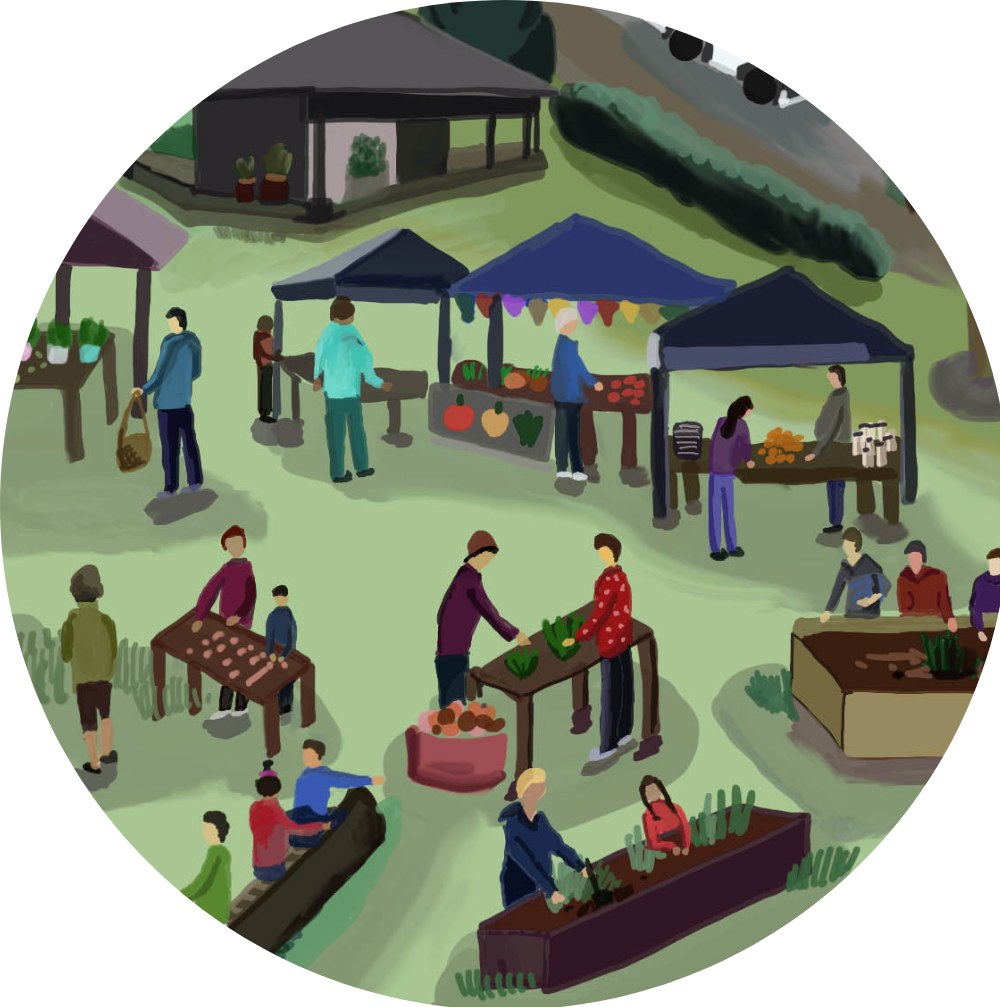 | 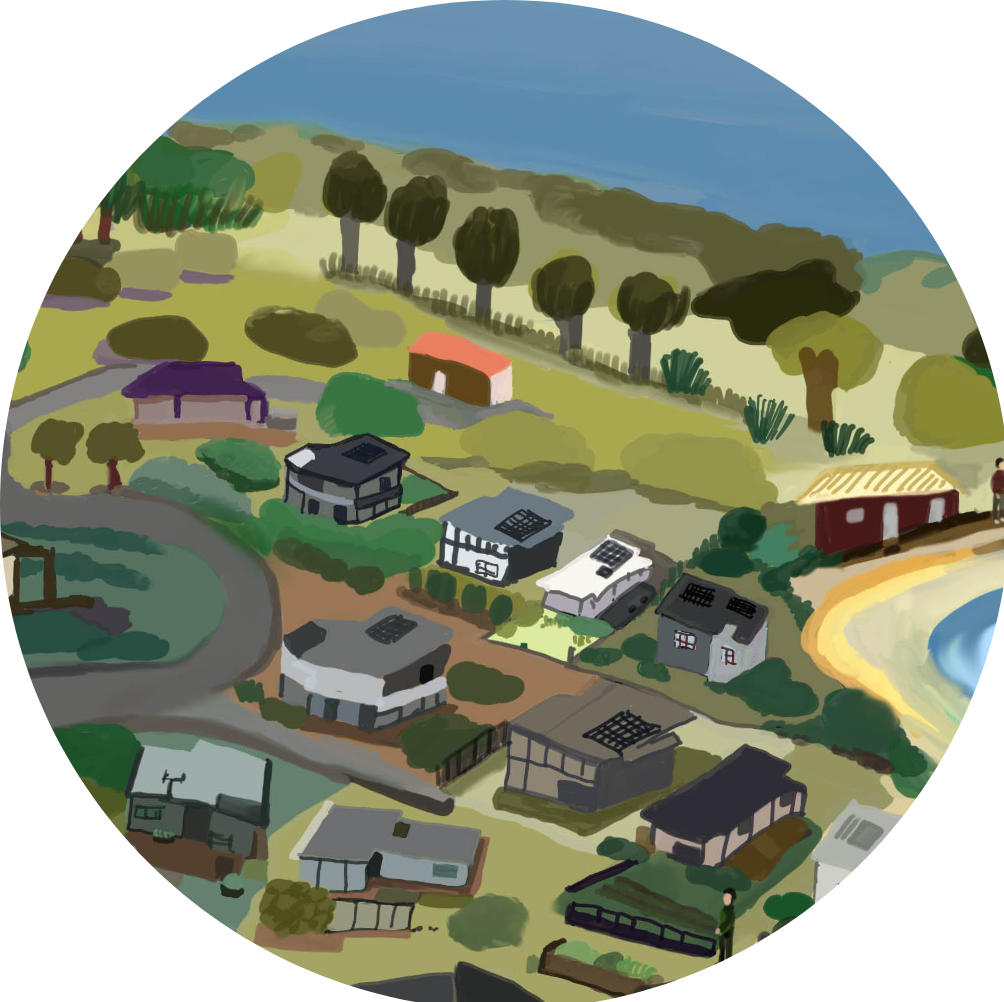 | 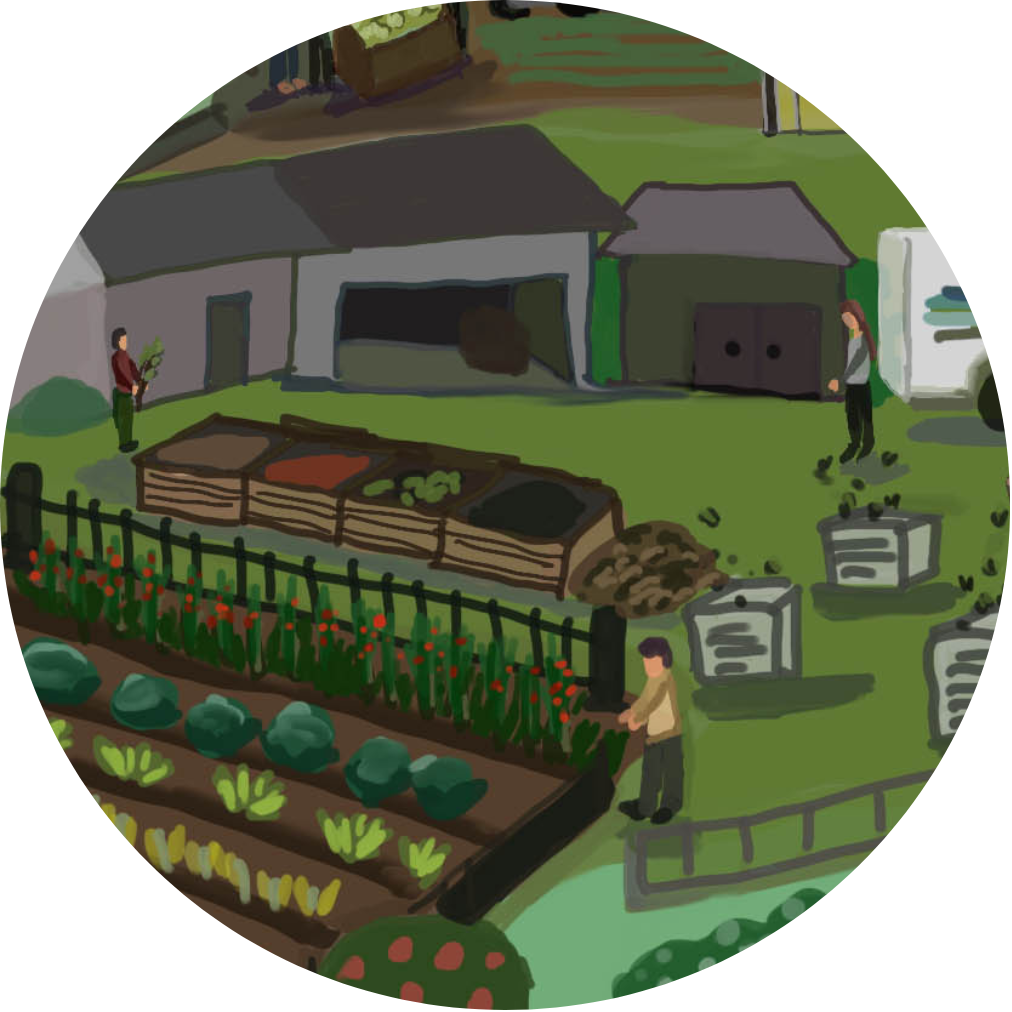 | 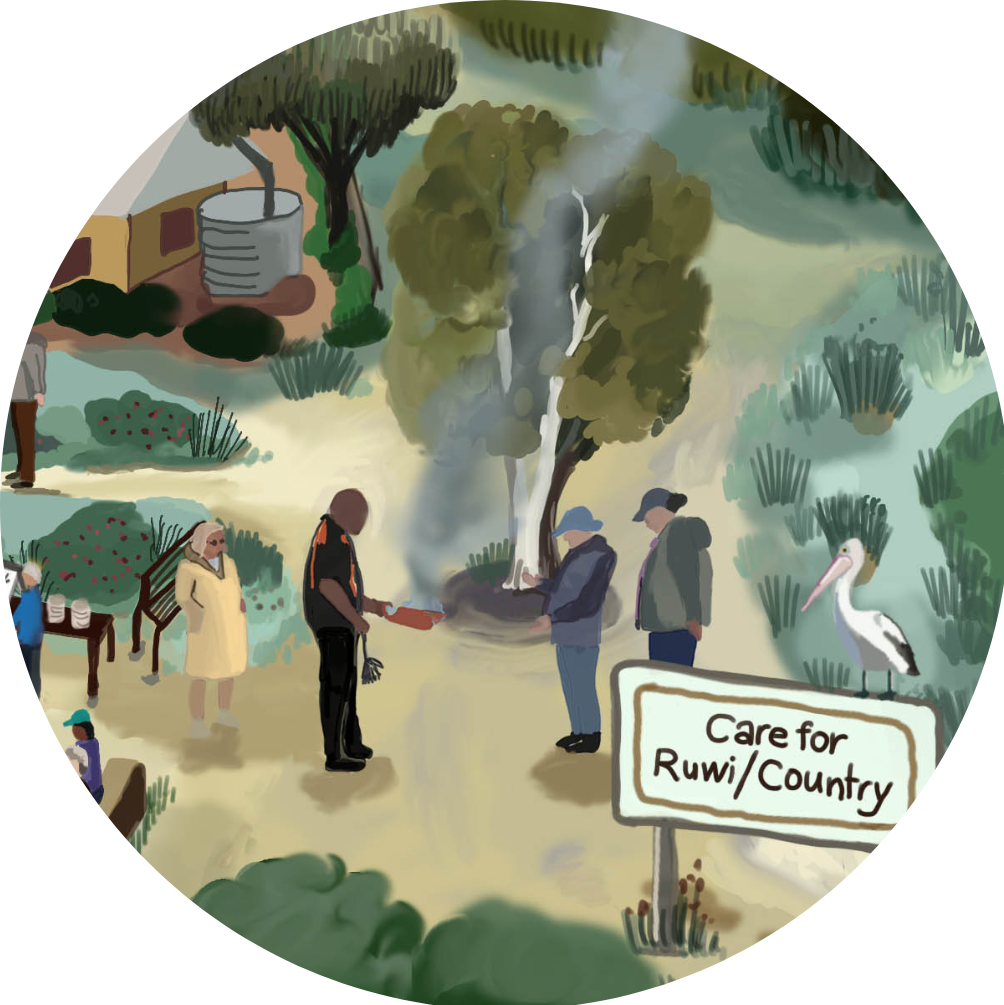 | 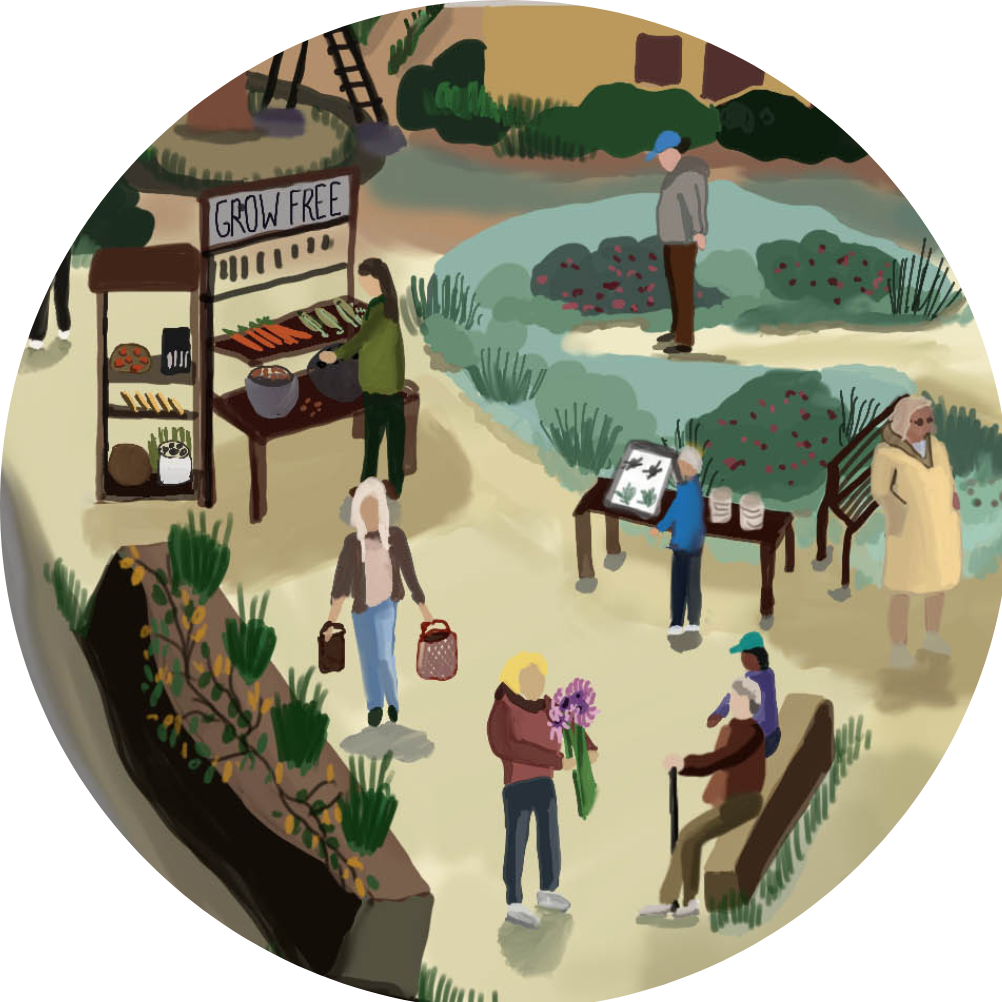 |
|---|---|---|---|---|---|
| Enabling Regenerative Farming | Supporting Local Food | Encouraging Sustainable Planning and Design | Reducing Food Waste | Learning alongside First Nations | Facilitating Education and Awareness |
How can you learn more and get involved?
- Connect with your local community garden
- Share produce through your nearest Grow Free cart
- Explore the amazing produce, products and experiences the Alexandrina region has to offer at ourlocalalexandrina.com.au
- Read Our Local Food System Summary Report – October 2021
- Find out how we’re collaborating on Food Systems with other Councils and our shared toolbox
- Find out more about the shared logistics scoping project
Under the “Supporting Local Food” theme of our vision, we are working with The Food Embassy and Regional Development Australia – Hills, Fleurieu & Kangaroo Island to explore the current logistics challenges and opportunities for small food and wine enterprises in the Fleurieu region. In May 2023 a short survey was completed by Fleurieu-based food businesses – you can find a summary of the results here – and scoping of potential solutions is currently underway with interested stakeholders. To find out more or get involved in this project please contact The Food Embassy liz@thefoodembassy.org - Get involved in the Hills and Fleurieu Local Food Future project
- ways in which farmers and producers can be supported and connected directly to local consumers,
- how the region can reduce the climate and ecological footprint of food, and
- how food and farming can support the cultural and social fabric of the region into the future.
Alexandrina, Mount Barker, Onkaparinga and Yankalilla councils, Regional Development Australia, Landscapes Hills and Fleurieu, Fleurieu Food, Engage Change and Sustainable Table have joined together to support a project working towards a thriving food future in the region.
The Hills and Fleurieu Local Food Future project is exploring:
A key component of the project is the creation of a Local Food Activator role, funded for an initial 12 months. Liz Sanders from the Food Embassy has been employed in this role to bring stakeholders from business, community and government together, plan for and deliver projects for sustainable food futures, and hold events promoting the local food region.
In its first 6 months, the project is already delivering valuable outcomes for our region. Click on our infographic below to read about it.
Find out more about the Hills and Fleurieu Local Food Future project and how you can get involved here.
The workshops and conversations were a first step to better understand the food system and co-create a regenerative food future. The journey has only just begun.
We are interested in talking to and collaborating with individuals, community groups, businesses, non-government and government organisations to further support a regenerative food system.
Contact Alexandrina Council on 8555 7000 or alex@alexandrina.sa.gov.au to find out more and how you can be involved in bringing our shared vision for a regenerative food system to life.
Other useful links
The South Australian Urban Food Network is a volunteer network of community members, community groups and governments working towards a shared vision for a regenerative local food system in South Australia.
The Food Systems Network are a South Australian-based network of local and state government representative and organisations coming together to learn, share and act to increase government and community action to create a more resilient, fair and regenerative food system for South Australian.
The Food Embassy is a Fleurieu-based social enterprise focussed on building a regenerative food system. Its vision is to build local food communities that restore and nurture our connection to ourselves, our community, and our planet. The Food Embassy activates local regenerative food systems by building awareness and connection through workshops, events and training for all players in the food system, from community to business and government organisations.
Fleurieu Food are a not-for-profit member-based organisation promoting the delicious food of the Fleurieu region and creating connections between foodies – whether you’re a local or visitor, a chef or restauranteur, a winemaker or farmer.
Sustainable Table are a charitable organisation who are transforming farming, food and fibre systems in Australia. They are not your typical funding organisation. Through capacity building, collaboration and linking projects with aligned funders they are enabling projects that can lead the way towards food system regeneration.
Sustain: The Australian Food Network a “think and do” network that enables the transition to a food system that supports flourishing communities, individuals and ecosystems. Sustain gives people, councils, and organisations the tools they need to help them become empowered food citizens, supporting healthy communities, people and ecosystems.

